Event Summary
MIPIM GALLERY + VIDEO | The reality of delivering 15-minute cities
Conspiracy theories, infrastructure woes, and inclusivity concerns were all discussed at the Manchester Pavilion on Wednesday as panellists dug into the real issues surrounding these communities.
The 15-minute cities panel included Civic Engineers chief executive Stephen O’Malley; Muse board director Phil Mayall; dRMM co-founding director Sadie Morgan, and Layer Studio director Matthew Warner. The session was chaired by Place North West editor Julia Hatmaker.
- Don’t miss more news from MIPIM. Visit Place North West’s MIPIM Hub
The term ‘15-minute cities’ describes a community where everything a resident needs – schools, hospitals, shops, offices – is able to be accessed in 15 minutes, whether that’s by train, car, cycle, or their own two feet. The phrase has become controversial lately, with Nick Fletcher MP telling the House of Commons that 15-minute cities could take away personal freedoms.
Morgan suggested that the term ’15-minute cities’ needed to be rethought.
“We need to think about the way we talk about ideas and visions,” she said, adding that the focus should be not on the name but on what it is trying to deliver.
“What we’re trying to make is a community,” she said. “We’re trying to make places and spaces that increase the quality of life.”
Warner echoed her point, adding that it was crucial this was conveyed to those who have misconstrued the meaning of a 15-minute city.
“We need to battle that argument and come out with a positive step forward,” he said. “We need to engage those people and teach people that this is the way we need to be living.”
The obsession with cars is one of the main problems facing the 15-minute city concept, according to the panellists.
“If we reallocated space in our urban centres and provided opportunity to let nature back into our streets and urban environment that would only enhance the whole experience,” O’Malley said.
“If we shrink the geography available for highway and reduce the amount of tarmac, we can start to introduce rain gardens and green infrastructure to help increase the climate resilience of our urban centres and make them a much more enjoyable place to spend time in as well as provide habitat for biodiversity,” he said.
When it was pointed out that cars are an important tool for enabling those who are disabled to engage with city centres, the panel emphasised that it was not about eliminating vehicular access to a community, instead, 15-minute cities are about providing additional options.
“If we give people choices, they will gravitate to the thing that suits their needs,” Mayall said. “The minute we stop giving people choices, the minute we remove opportunity. If we remove opportunity, we’re constraining what we can achieve for society.”
Panellists also weighed in on the need to make sure infrastructure is delivered in conjunction with new homes to help create these communities. Building schools, for instance, only after a series of homes are built, for instance, does not work. The school should be built around the same time, so that existing infrastructure is not overwhelmed, according to the panel.
- Hear more thoughts from the panellists in the above video or watch it on YouTube
- Watch the full panel discussion
Looking to the future, the panellists all agreed that while the 15-minute concept will continue to become more and more commonplace, the term will probably be left behind. At the end of the day, they said, the phrase just describes the way humans naturally want to live – in a community where they access what they need, with ease.
Click any image to launch gallery


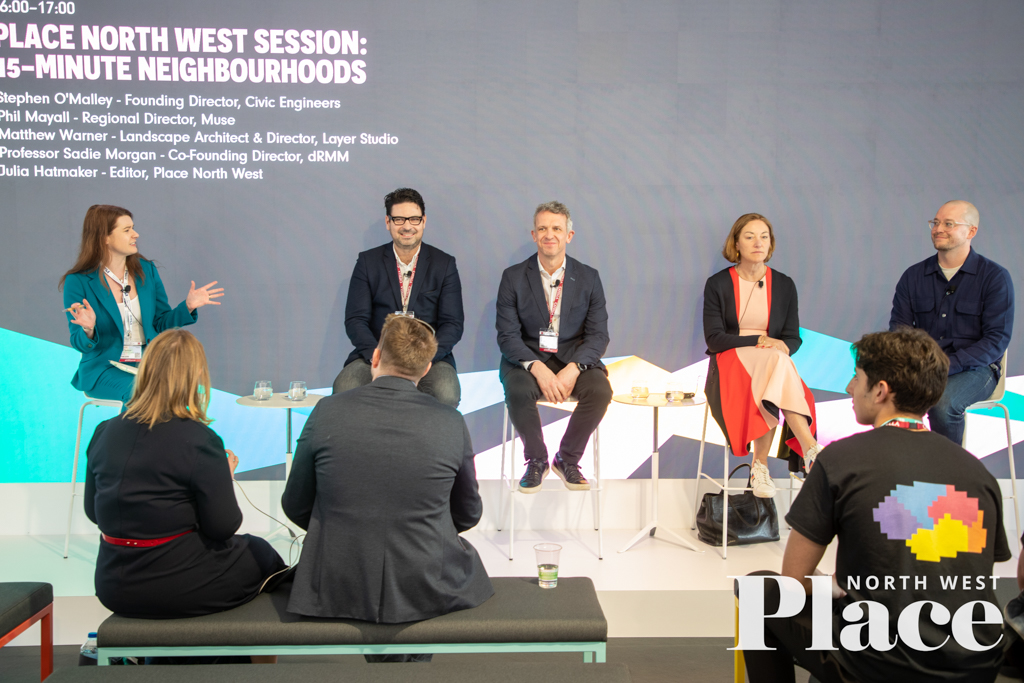
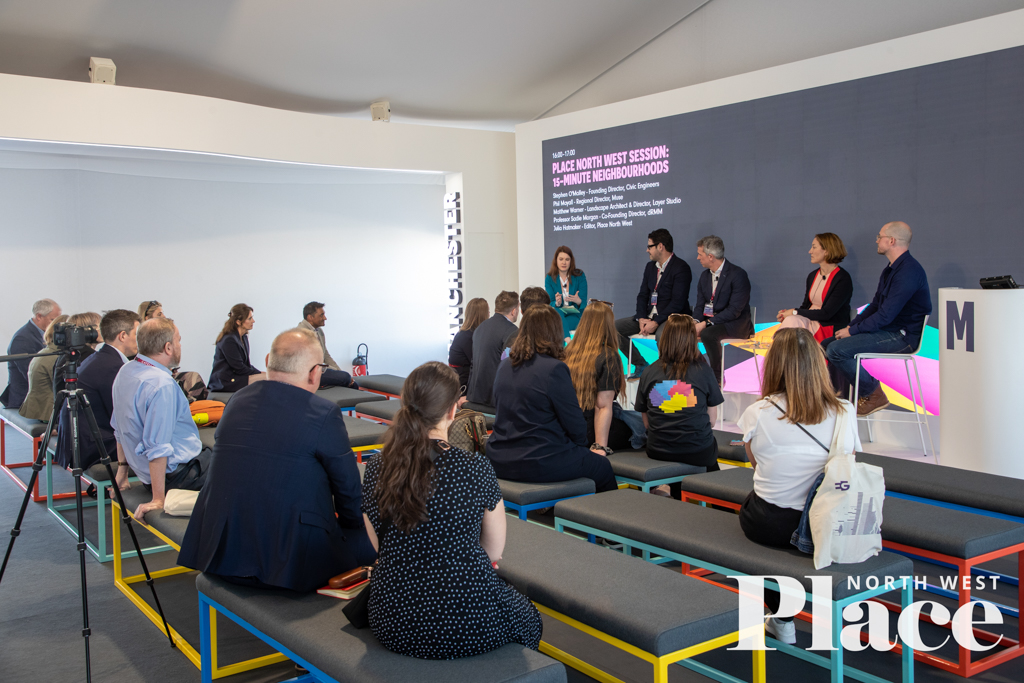
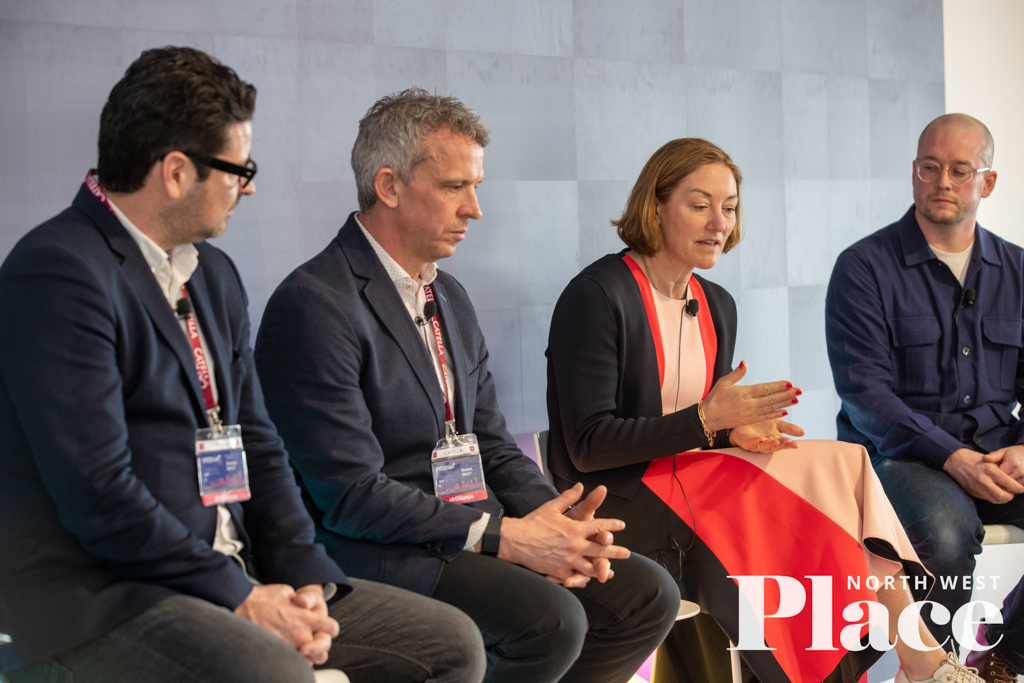
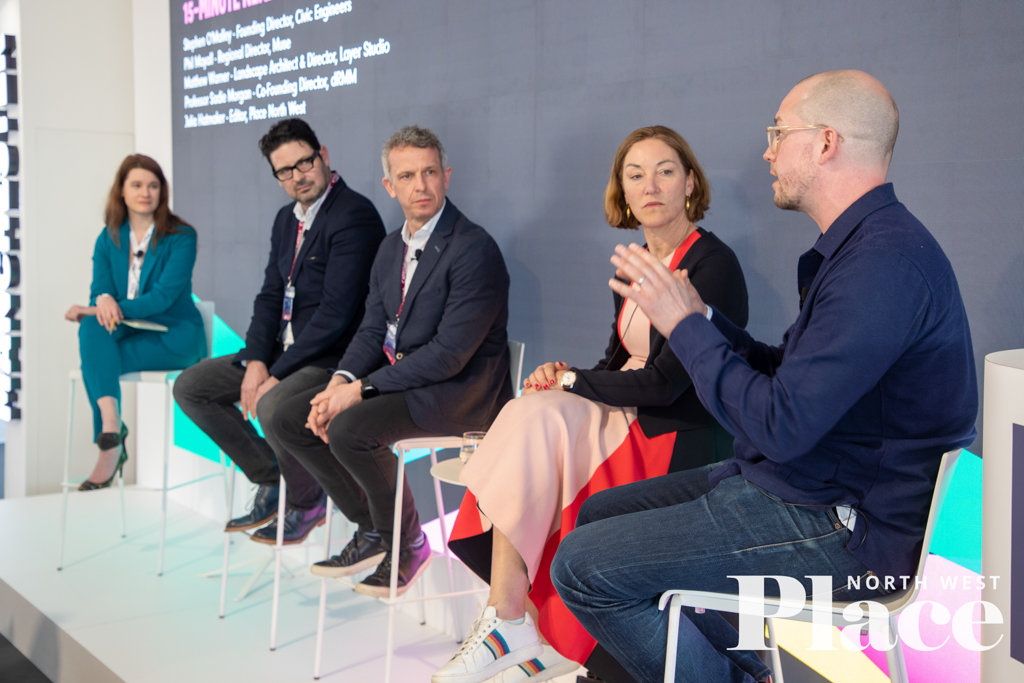
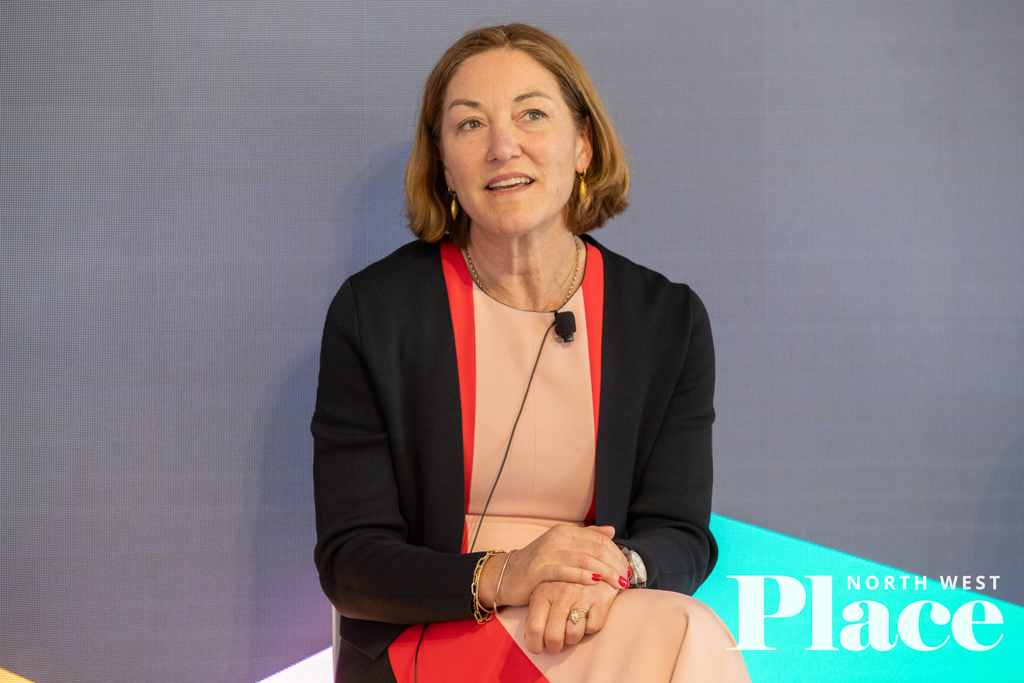

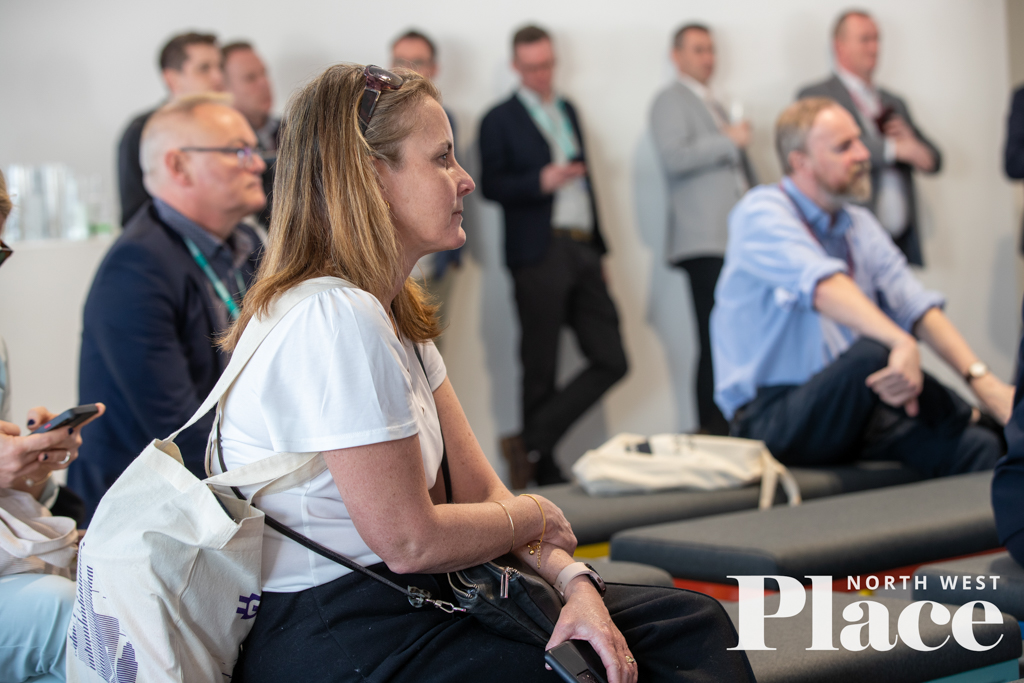
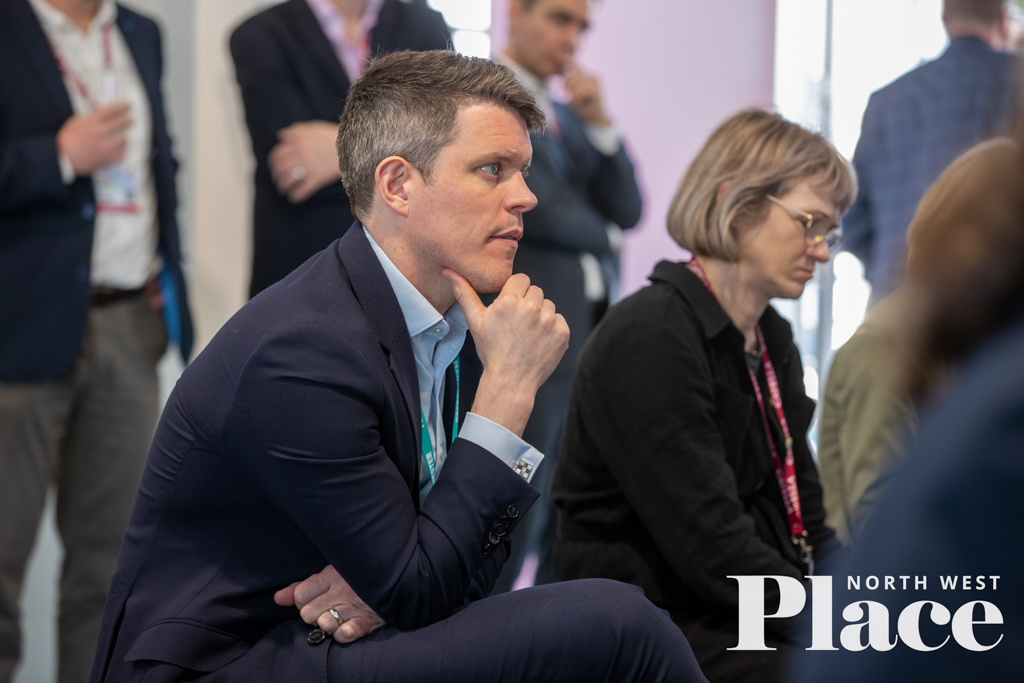
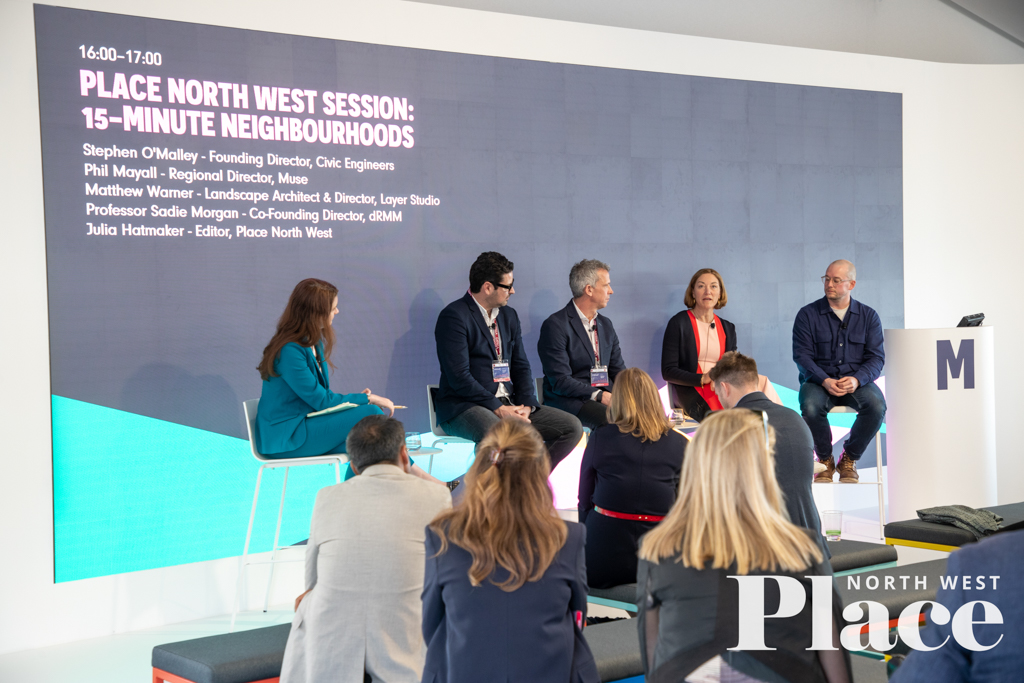
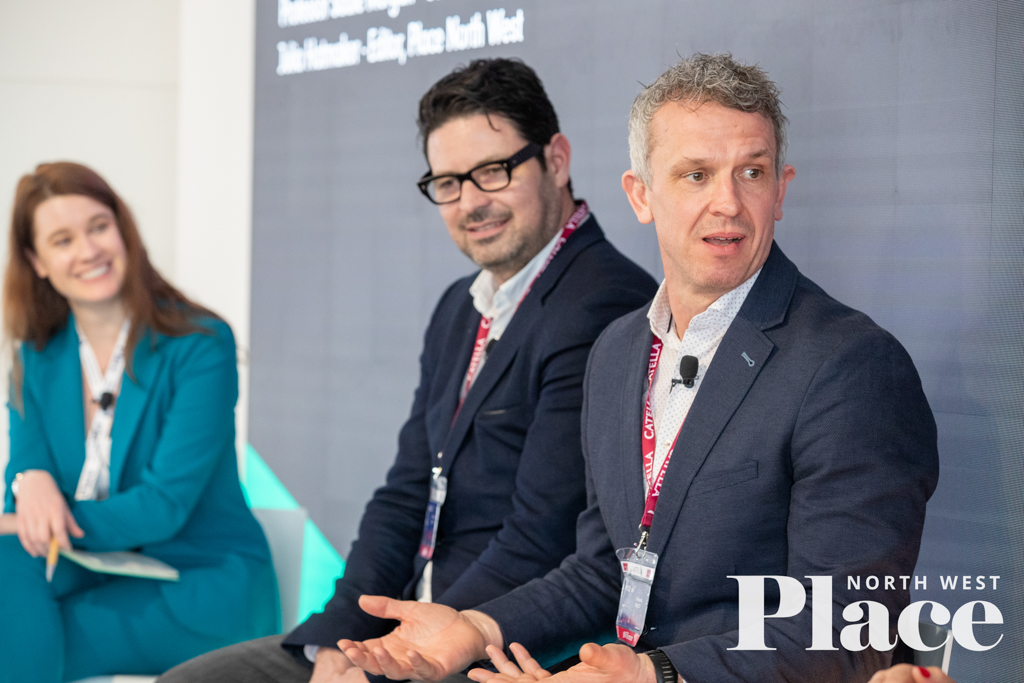
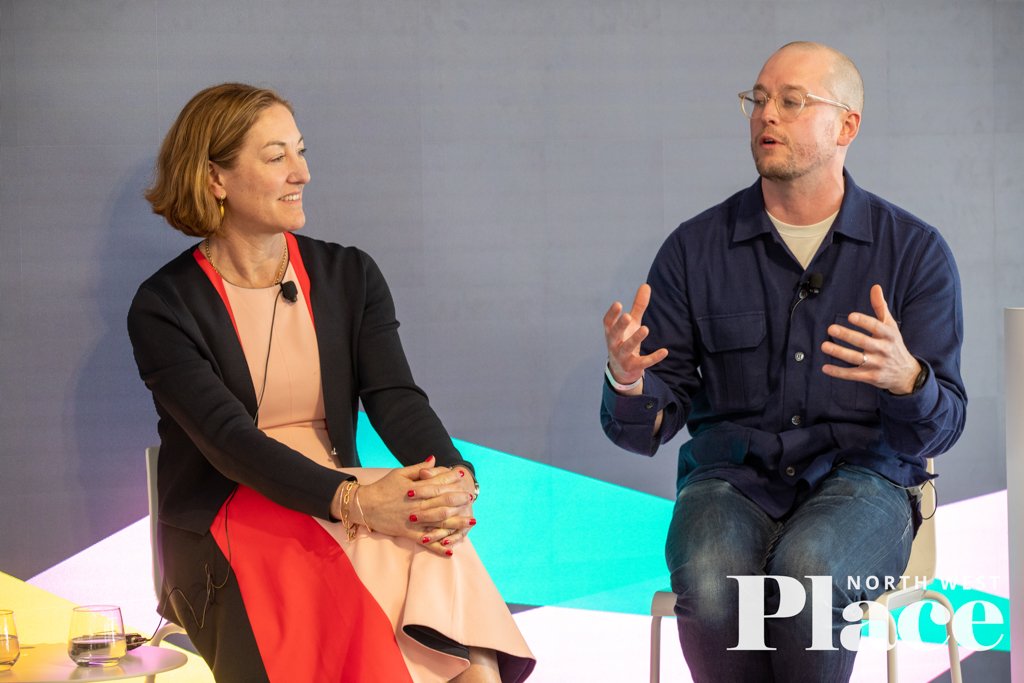

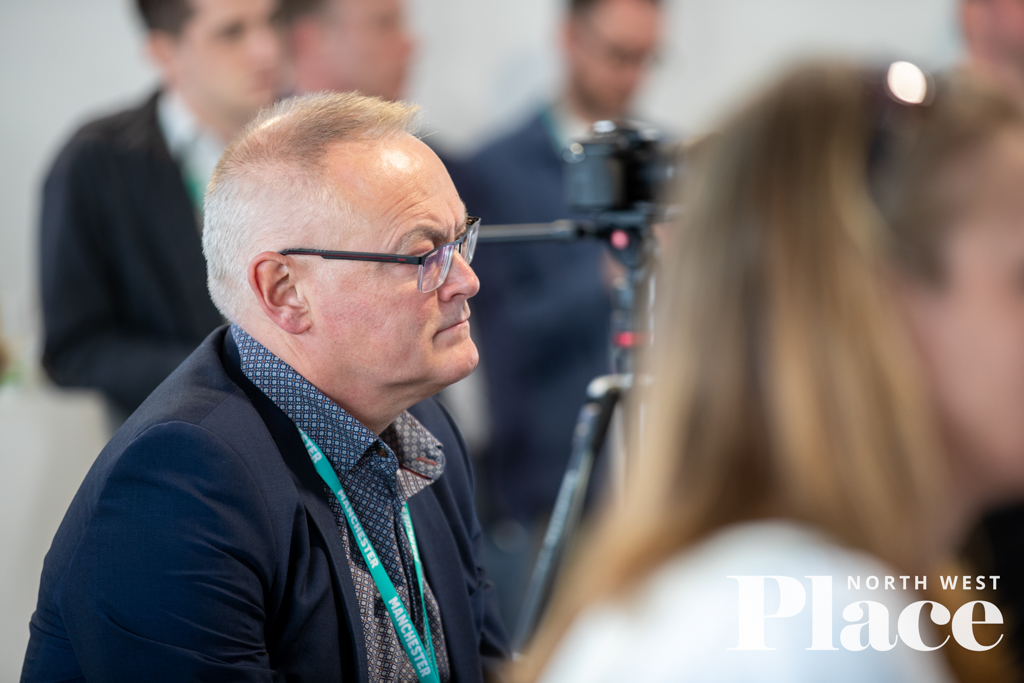
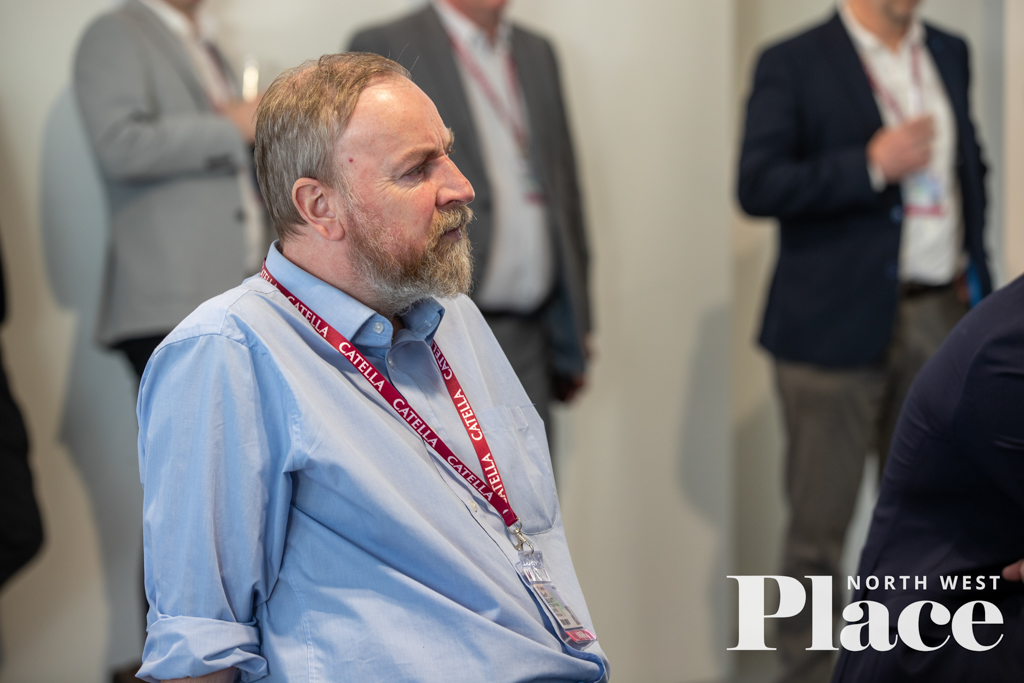
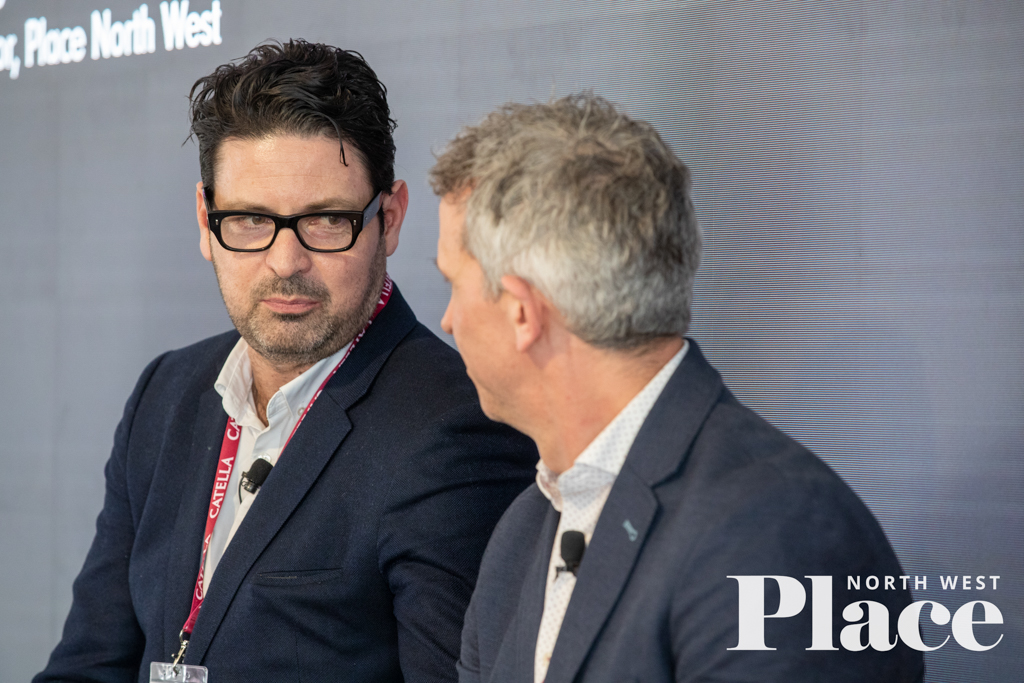
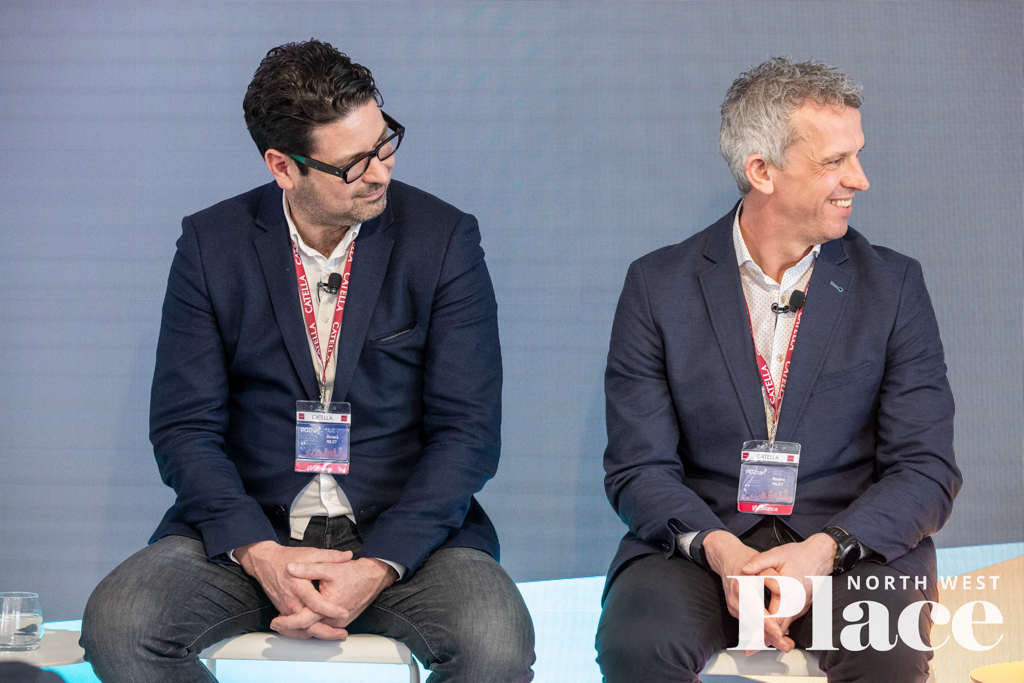
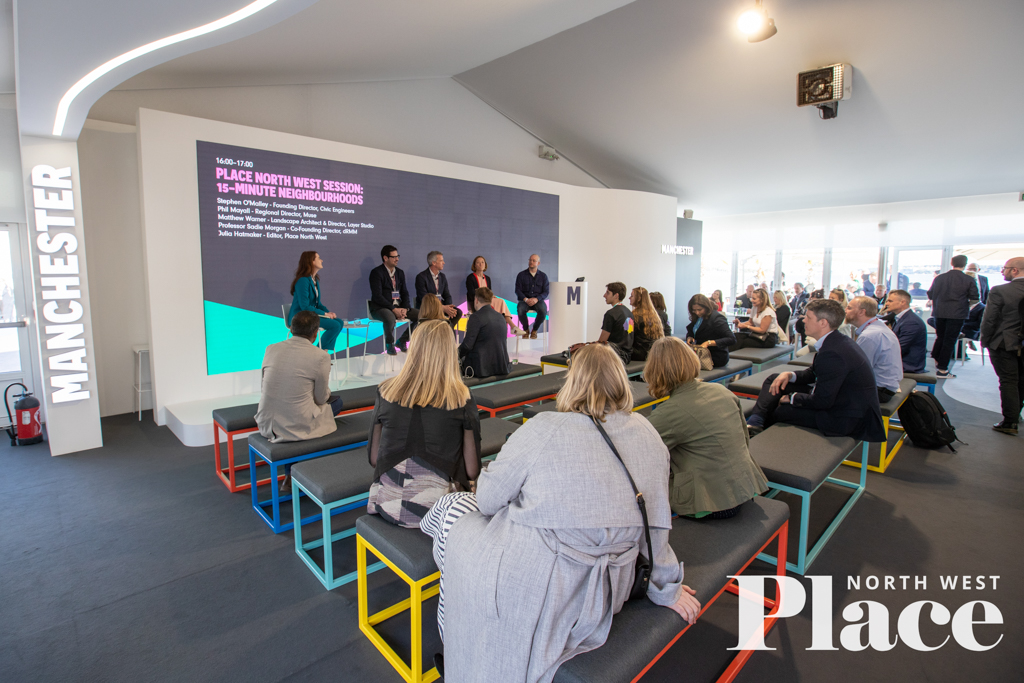

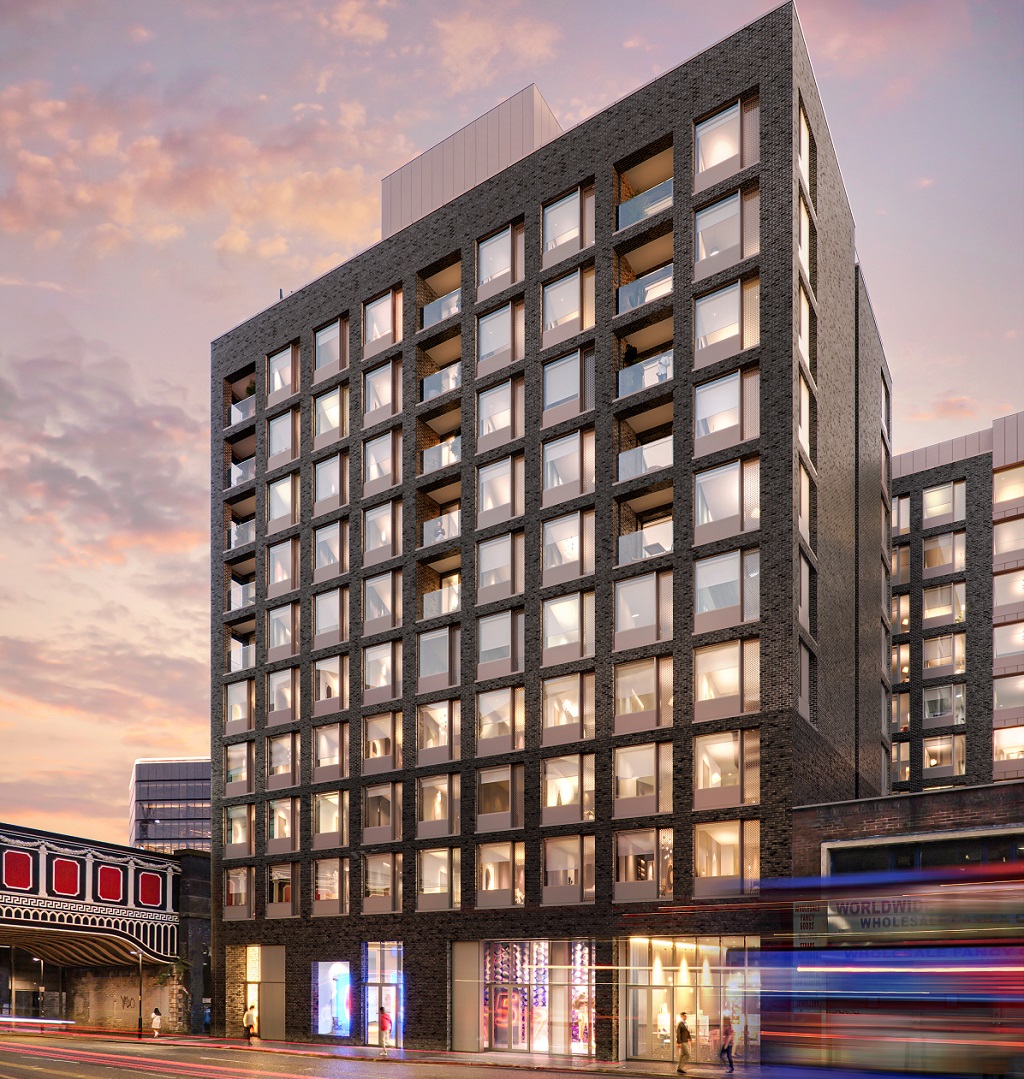
Why are they still building multistory car parks with new development Manchester unlike the underground parking in France which means more land available green spaces or housing
By Anonymous
Don’t judge them on what they say or promise, judge them on what they’ve delivered: Dying high streets, old and disabled people excluded from facilities, frustrated journeys and needless punitive gridlock abound where councils have wasted money on this latest gimmick.
British councils do not have the intellect, ability or sense of public accountability necessary to create the true 15 minute city in its intended sense.
By Jeff
It is bizarre to dress up an assault on the motor vehicle as “giving people choices”. These bureaucrats have only contempt for the will of the demos.
By Anonymous
March 17, 2023 at 6:25 pm
By Anonymous
Some people’s choices infringe on other people’s choices. That’s why we balance liberties and choices.
The most successful places are technically 15 minute neighbourhoods eg market towns, old style suburbs etc.
By SW
Yes some people appear to have been wound up by certain far-right internet conspiracy theorists regarding ‘15 minutes cities’. It’s a fairly innocuous concept but hilariously, extremely triggering for some people.
By Anon 2
Anon2 , that makes about as much sense as saying that defending 15 minute cities is a “far left” strategy ie none at all. People will and should question anything that comes directly from the WEF . Questioning it is hardly being ‘triggered’, that’s just a very lazy argument.
By Anonymous
Most people in the UK already live in a 15-minute neighbourhood. Quite how this conspiracy theory has took off is beyond me – I clearly over-estimated the intellegence of many of my fellow countrypeople.
By Anonymous
Hi Anonymous @ 11:09.
Are you saying that quintessential British market towns of Dorchester, Keswick, Canterbury or Lincoln for example; or closer to home, places like Chorlton or Bury or Altrincham, all of which exemplify the principles of a 15 minute city, are all a construct of a shadowy global elite?
If not, the people who are getting needlessly triggered by this phrase need to be better at explaining what their problem is.
By Anon 2